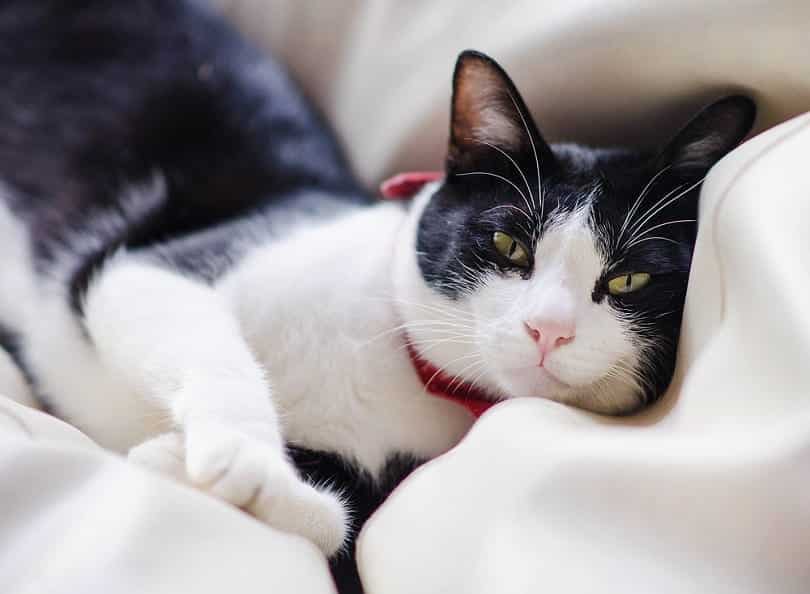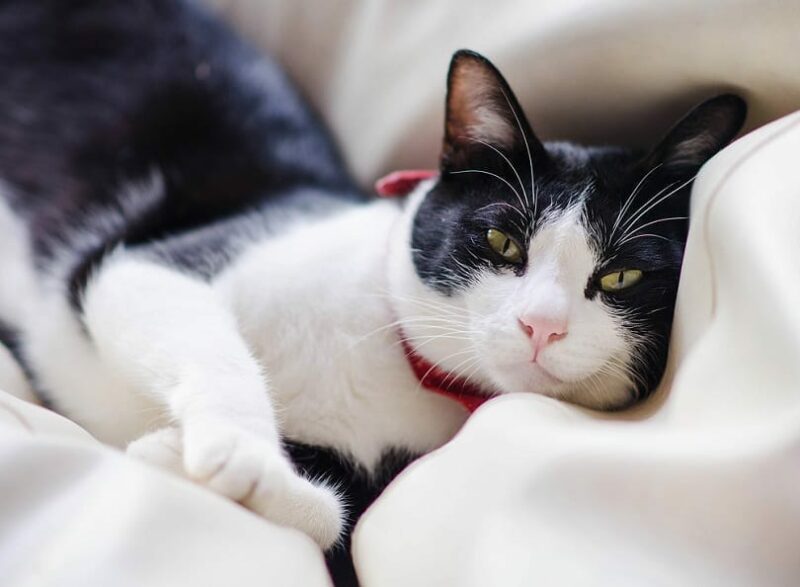Whether you live with a tuxedo cat, you are thinking of adopting one as a family pet, or you prefer admiring them from afar, you may want to learn more about this type of cat. There are many interesting facts about the tuxedo cat that can help you understand this kitty better and develop a deeper appreciation for them as a whole.
Here are 14 fascinating facts about tuxedo cats that every feline lover should know.
The 14 Facts About Tuxedo Cats
1. Tuxedo Is Not the Name of a Breed
The tuxedo cat is not a breed. The name represents the black-and-white coat pattern that a cat may have. Any cat with a majority black coat and white markings (though some have other colored markings on the body) along the face, neck, chest, and belly is typically considered a tuxedo cat.
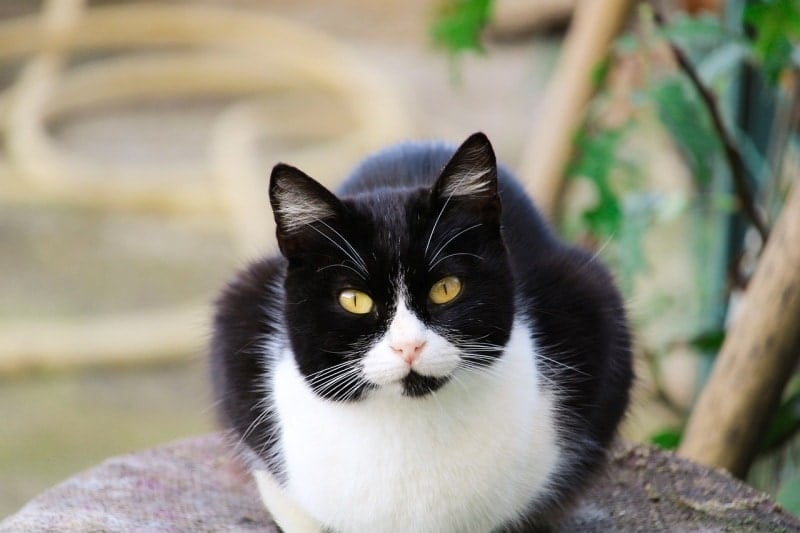
2. It’s All About Genetics
How a cat’s coat displays comes down to their genetics. These are responsible for determining their coat length, texture, colors, and patterns overall. Several different genes work together to create a cat’s coat, so the process can be confusing and challenging to understand. For a tuxedo cat, their genetics dictate that they display mostly black fur with white markings, especially on the chin, neck, and chest.
3. The Egyptians Seemed to Have Loved These Cats
A few researchers have concluded that ancient Egyptians were responsible for creating the hieroglyphics and ancient drawings that feature tuxedo cats. It is said that these people regarded tuxedo cats are gods and goddesses. However, we can’t be positive that the depictions that Egyptians displayed are the same as the tuxedo cats that we know and love today.
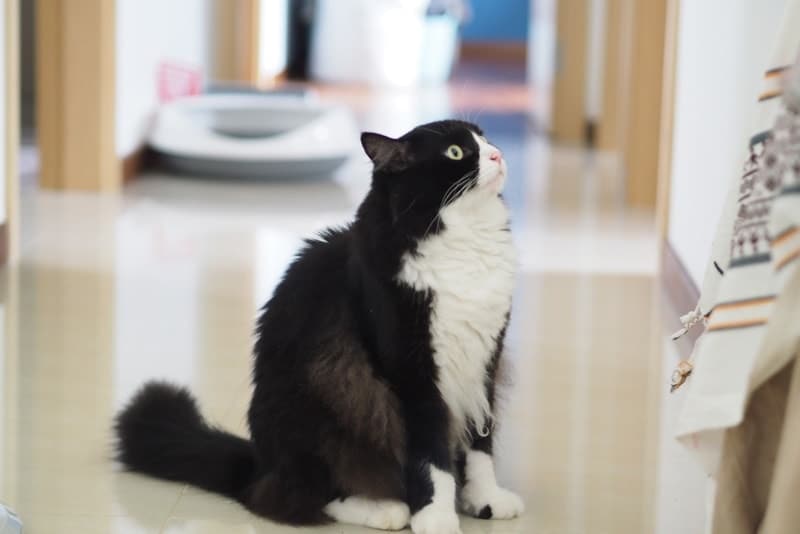
4. They Take Well to Photography
Due to their black-and-white coats, tuxedo cats are known for being great photography objects. They show well in front of brightly colored backgrounds and can easily be part of family and household photos. These cats can even stand out in spaces where proper lighting isn’t available, making them photogenic cats that no photography-loving prospective cat owner should overlook.
5. These Curious Cats Are Big Explorers
All tuxedo cats tend to be curious, which is interesting because they can come from many types of breeds and all walks of life. However, most tuxedo cat owners find that their kitties always seem to be on the hunt for something new to explore, whether that means a new play tower or a paper bag that’s been left on the ground.
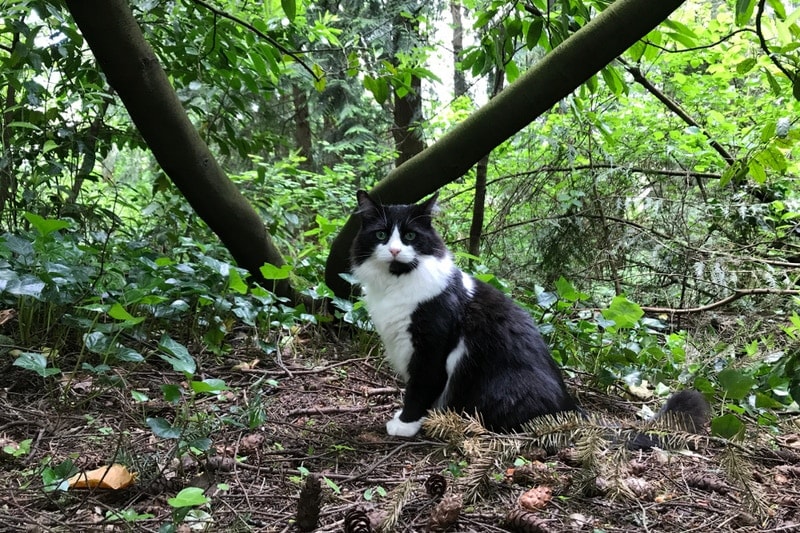
6. One Tuxedo Cat Became a Decorated War Veteran
A tuxedo cat named Simon served on the Royal Navy sloop-of-war HMS Amethyst during World War II. He received a medal of honor called the Dickin Medal in 1949, presented by the People’s Dispensary for Sick Animals. He suffered from and survived artillery shell injuries while raising the morale of those of the humans he served with and warding off rat infestations from base camps.
7. One Tuxedo Cat Was Named a Millionaire
A tuxedo cat named Sparky was owned by a multi-millionaire and inherited $6.3 million when their owner passed away! This happened in 1998, and Sparky lost his rank as the richest cat to a feline that inherited $11 million from their owner in 2011.
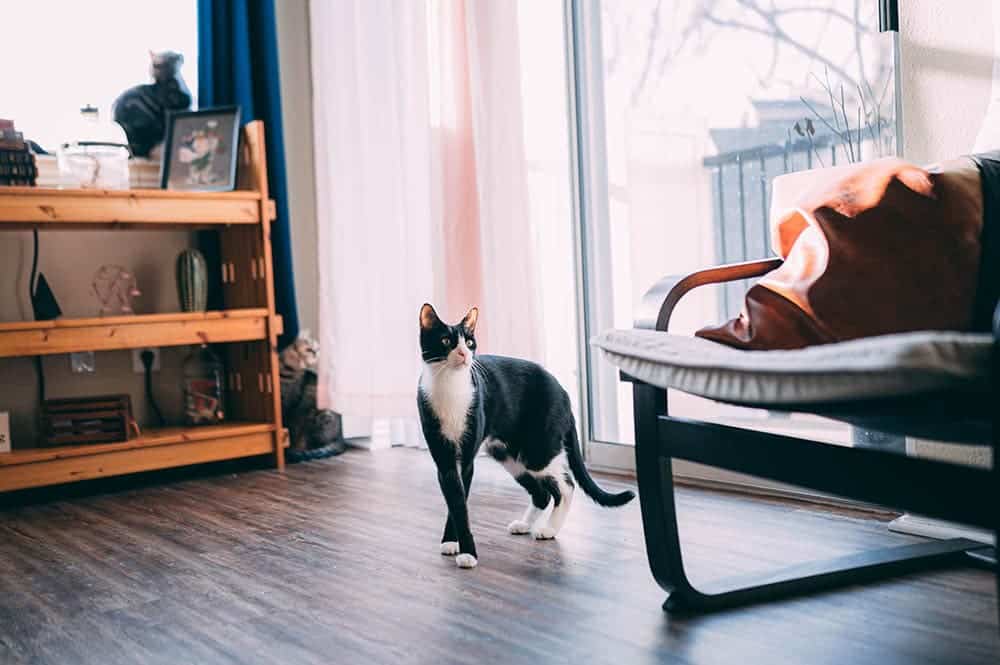
8. One Tuxedo Cat Ran for Mayor
It’s true: A tuxedo cat ran for Mayor of Halifax, Canada, in 2012. The name of the cat was Stan, a 3-year-old male running on the platform of the Tuxedo Party, which hoped to bring attention to the stray cat problem in the area. Stan was once a stray himself, so he had solid experience to work from. In the end, though, Stan lost his bid.
9. They Are Never Identical
No two tuxedo cats look alike. They all have unique markings, even within the same breed. Whether you inspect two or 50 tuxedo cats and compare them to one another, you would be hard-pressed to find identical twins.
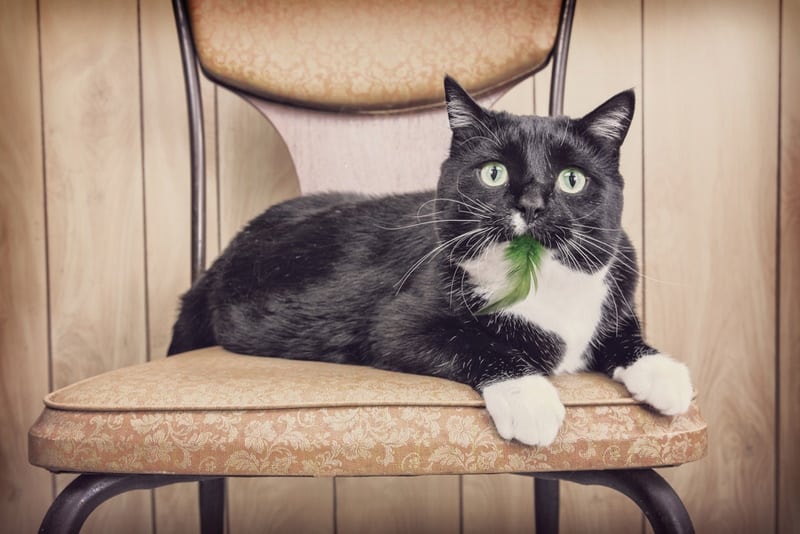
10. They Are known as Extremely Affectionate Cats
Tuxedo cats are known for being extremely affectionate. It could be because the same genetics that creates their coats also helps create their affectionate personality, or it could be a coincidental type of anecdote shared among cat owners. Whatever the case, if you end up living with a tuxedo cat, chances are that you’ll be dealing with a cuddlebug.
11. Strict Show Guidelines Are in Place for Tuxedo Cats
There are strict guidelines to adhere to when choosing to show a tuxedo cat in competitions. For one thing, they must have no more than ¾ of their coat displaying white. The guidelines differ from organization to organization, so contact the organization that you want to participate in to find out the specific guidelines.
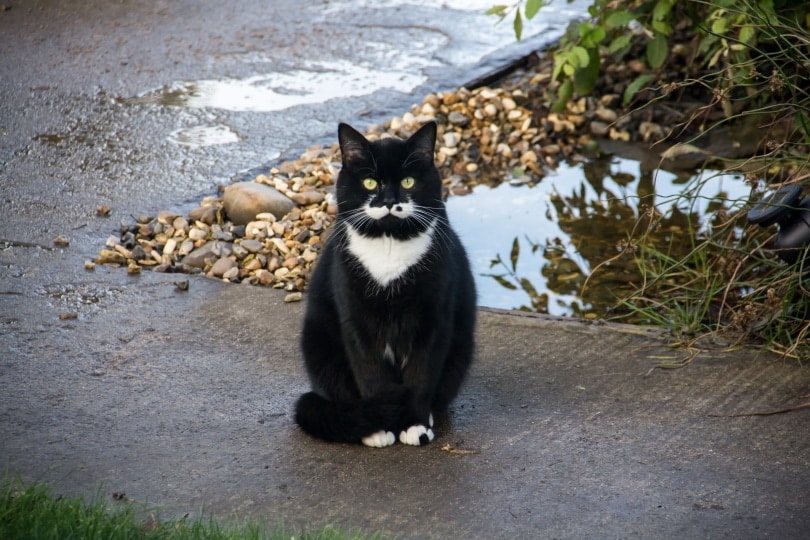
12. Tuxedo Cats Are Typically Intelligent
Another anomaly that tuxedo cats seem to share is a sharp sense of intelligence. Although common in multiple breeds, the tuxedo cat tends to excel when it comes to things like training, socializing, and problem solving.
13. A Tuxedo Cat Is One of the Most Famous in the Cartoon World
We all know and love Tom from the “Tom and Jerry” cartoons, but many do not realize that Tom is a mixed-breed tuxedo cat (and grey and white, instead of black and white). He displays many of the characteristics that most tuxedo cats have, including smarts, curiosity, exuberance, and loyalty.
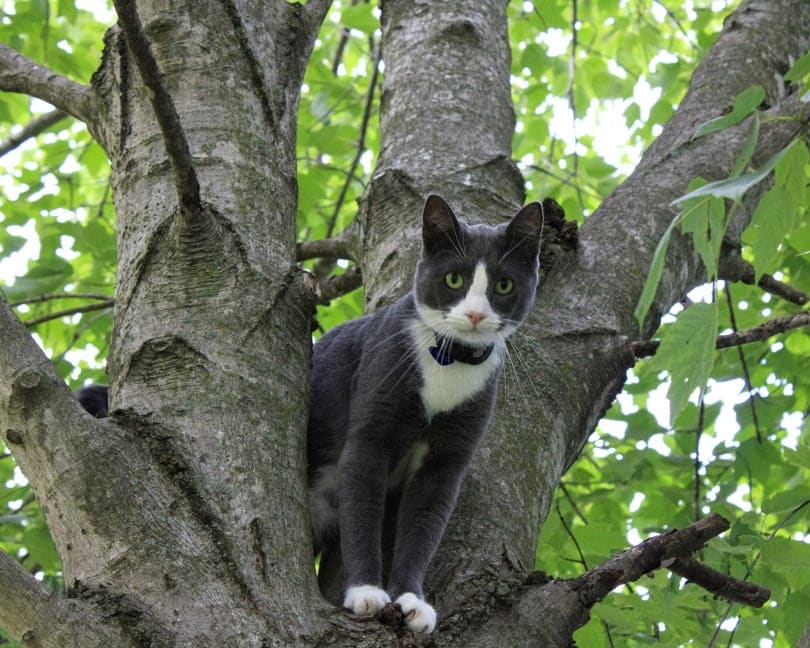
14. A Tuxedo Cat Once Represented the White House
A cat named Socks lived at the White House during the Clinton era, and Chelsea Clinton cared for him throughout his tenure as a family and administrative representative. He was so beloved that his likeness was used to create the design for the children’s version of the White House website. Sadly, the cat had to move in with another family after the Clintons’ dog refused to get along with him.
 Conclusion
Conclusion
Cats come in all kinds of colors and coat designs, but there is nothing quite like the tuxedo cat. You can spot them from a mile away, and no cat of this type can be mistaken for another. Now that you know cool facts about the tuxedo cat, you can help educate your friends and family so they can become more familiar with this type of feline friend!
Featured Image Credit: slidesl, Shutterstock
Contents
- The 14 Facts About Tuxedo Cats
- 1. Tuxedo Is Not the Name of a Breed
- 2. It’s All About Genetics
- 3. The Egyptians Seemed to Have Loved These Cats
- 4. They Take Well to Photography
- 5. These Curious Cats Are Big Explorers
- 6. One Tuxedo Cat Became a Decorated War Veteran
- 7. One Tuxedo Cat Was Named a Millionaire
- 8. One Tuxedo Cat Ran for Mayor
- 9. They Are Never Identical
- 10. They Are known as Extremely Affectionate Cats
- 11. Strict Show Guidelines Are in Place for Tuxedo Cats
- 12. Tuxedo Cats Are Typically Intelligent
- 13. A Tuxedo Cat Is One of the Most Famous in the Cartoon World
- 14. A Tuxedo Cat Once Represented the White House
- Conclusion

